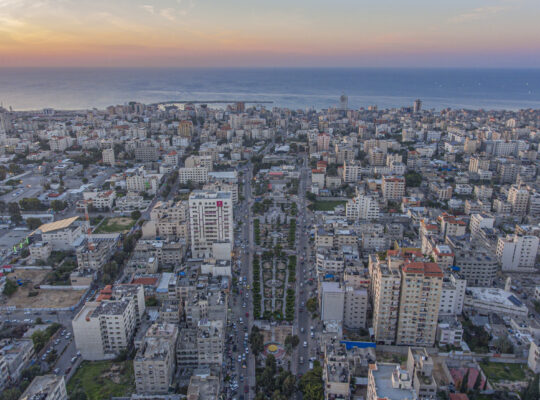Unlock the Editor’s Digest for free
Roula Khalaf, Editor of the FT, selects her favourite stories in this weekly newsletter.
Beaten with a stick, thrown over a motorcycle like a sack and dragged into a subterranean network of tunnels inside Gaza, 85-year-old Yocheved Lifshitz spent 16 days as a Hamas hostage.
Released suddenly, alongside Nurit Cooper, 69, Lifshitz is one of four hostages — out of more than 200 taken into Gaza by Hamas militants in the October 7 attack — who have emerged, seemingly in good health, in a process mediated by Qatar, Egypt and the International Committee of the Red Cross. She is the first to speak publicly of her ordeal.
Hours after her release, she stood outside Ichilov Hospital in central Israel, and told her story, both surreal and sordid, to a bank of reporters.
“I went through a hell we never thought we could reach,” she said. “I went through a nightmare we couldn’t have imagined.”
At least 1,400 civilians and soldiers were killed in the devastating October 7 assault by Hamas militants based in Gaza, according to Israeli authorities, the worst attack in the history of the Jewish state. Israel responded by launching a massive aerial bombardment of Gaza, which has killed at least 5,087 people so far, local health authorities said, and levelled huge sections of the Palestinian enclave.
For Lifshitz, the scenes keep repeating in her head. She told of the Hamas fighters who broke in and rampaged through the Kibbutz Nir Oz where she lived, killing and kidnapping “old and young, with no distinction”. She and her husband, a peace activist, were snatched from their beds. He is still held hostage.
“When they took me, they put me on a motorcycle, legs on one side, head on the other,” she recalled.
Two motorcycles flanked the one she was on, and all three raced through the fields, just a few kilometres from Gaza’s border with Israel. “They didn’t break my ribs, but it hurt a lot, making it difficult to breathe,” the elderly woman said.
Someone robbed her of her watch and jewellery. She guessed they were briefly held in the southern Gaza town of Abasan Al-Kabira. After that, she has no idea.
Taken underground, her captors guided her for two or three hours through a “spider web of tunnels”, eventually emerging into a large hall with 25 other captives. They were separated again, with the hostages arranged by the kibbutz that they had been snatched from.
The situation improved after that. They were visited by a doctor every other day, who gave them medication they needed, swapping out similar ones for those not available in Gaza.
“They took good care of the wounded,” Lifshitz said, describing one person who had been injured in the arms and legs during their kidnapping. “It was heartbreaking to see that.”
Their captors took care of their hygiene, even cleaning their toilets. “They were worried about the outbreak of something,” she said.
They received a pitta bread with white cheese and cucumber each day.
In a video staged around their release and handover to a Red Cross representative, she and Nurit appear dazed, but unhurt. Clothed in the long dresses worn by older Palestinian women, they are offered biscuits and a drink from masked Hamas fighters, with the handover captured on camera by the militant group.
In a clip that has since gone viral on Arab television channels across the region, she then reaches back to shake the hand of one of her armed captors. Her description of the care her captors took of her have also been played nonstop on some Arab news channels, alongside her criticism of the Israeli government’s failure to protect her and her family.
“The lack of knowledge by the IDF [Israel Defense Forces] and Shin Bet [the intelligence service] harmed us badly,” said Lifshitz, adding that the military ignored signs from weeks ago, when Palestinian crowds massed at the fences.
“They did not take it seriously. We were left to fend for ourselves,” she said. “We were the scapegoat of the government.”
Additional reporting by Raya Jalabi in Beirut
Source link



